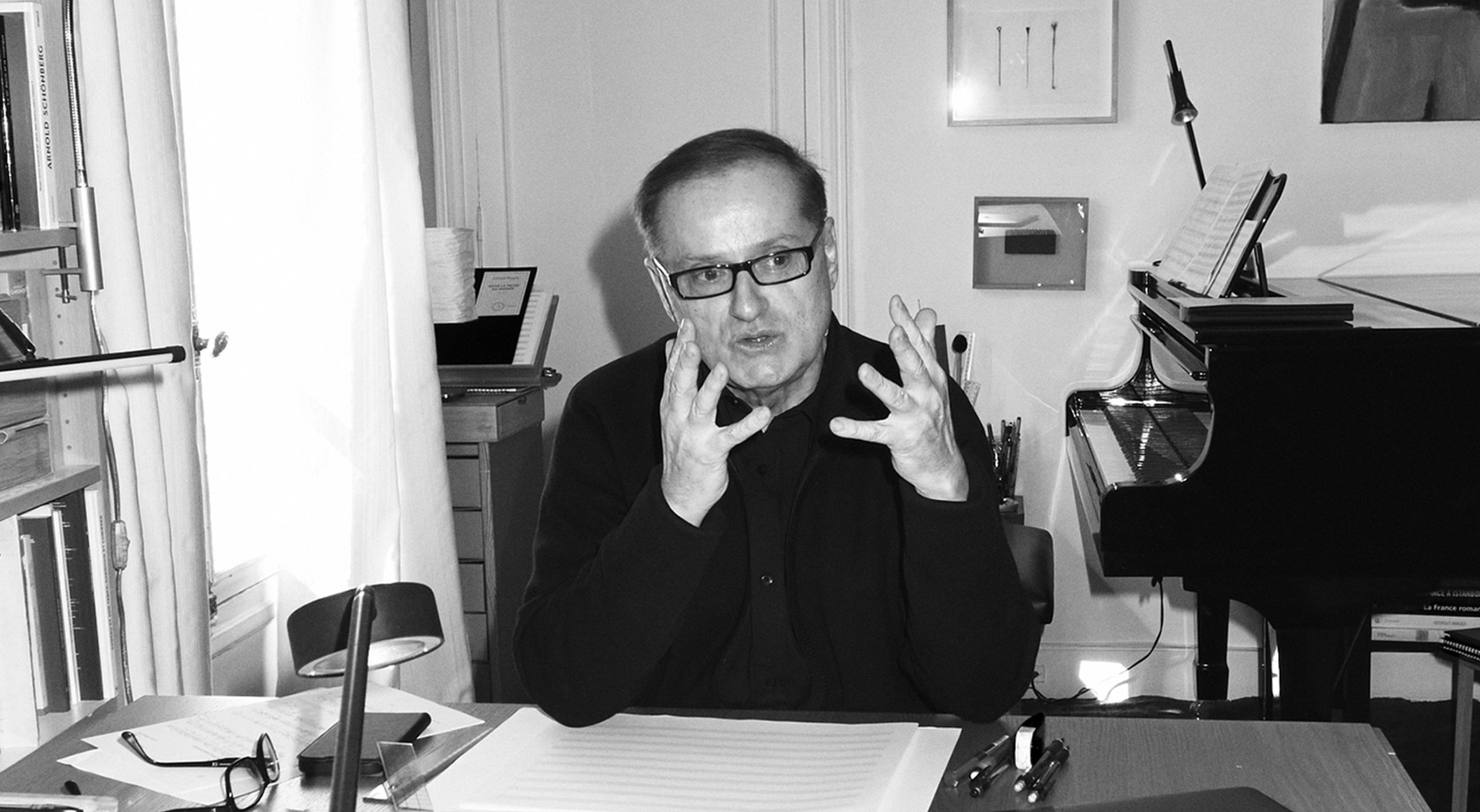Gérard Pesson
septembersept 22
Gérard Pesson, Musica Ficta, extract from Un tribut à Johann Jakob Froberger, for piano (right hand), with clarinet and cello
Maurice Ravel / Gérard Pesson, choir transcriptions of Ronsard à son âme and Shéhérazade (La Flûte enchantée and L’Indifférent)
Alexandre Scriabine / Gérard Pesson, choir transcriptions of Preuve par la neige (Si j’étais lune, Quand la lune paraît, Ton image)
Gérard Pesson, Trois Pièces brèves pour violoncelle, extracts (n° 1 et n° 2)
Gérard Pesson, Chants populaires, extracts (La force de l’homme est le point ; Une peau est seule)
Gérard Pesson, Catch Sonata, extracts (movements 1 and 2), for clarinet, cello and piano
Gérard Pesson, a new piece for voice, clarinet and choir
Text, Jean D'Amérique
Commissioned by the Festival d'Automne à Paris
Gustav Mahler / Gérard Pesson, Kein deutscher Himmel, choir transcription of Adagietto from the Fifth Symphony
Lise Baudouin, piano
Pablo Tognan, cello
Bogdan Sydorenko, clarinet
Les Métaboles choir
Multilateral Ensemble
Léo Warynski, conducting
Produced by Festival d'Automne à Paris
Thanks to the Saint-Eustache Church
The Festival d'Automne à Paris is the producer of this concert.
"Being awake while the master sleeps." Using these words, Gérard Pesson defines transcription. Carving out a path between irony and distance with the original, he breathes new life into the imaginary landscapes of Ravel, Scriabine and Mahler in a manner which is not void of melancholy. How we hear their works is altered, suspended in an illusory manner by a form of memory which is both flawed and creative.
Choirs of the dead and the living, the transcriptions of Gérard Pesson are exercises in admiration. We encounter Ravel, the "frail, mysterious, bashful and caustic" brother, Scriabine, whose incandescent, hallucinatory piano pieces summon up the verb itself, that of Constantin Balmont or Ossip Mandelstam, and in whose poems Pesson has embedded his chants, and Mahler, whose Adagietto from the Fifth Symphony is adorned with the verses of August von Platen. In Chants populaires, the poems of Philippe Beck are derived in analogical manner from the Brothers Grimm tales, thereby perpetuating their delectable, cruel games. We will also be treated to a new piece, a threnody-like homage to the untimely death of a friend. Amongst these choir works, Pesson will be breaking through the surrounding smoothness and dulcet tones with instrumental pieces: an unmeasured prelude for piano, in homage to the composer and harpsichordist Froberger, as well as two short cello pieces, stripped to their bare essentials, providing the evening's audience with an archipelago of sounds. And, last but not least, Catch Sonata, which transcribes, in the place of music, Freud's Fort-Da spinning-top game, in which an idea which refuses, in silence, to be distanced or erased, is seized upon.

